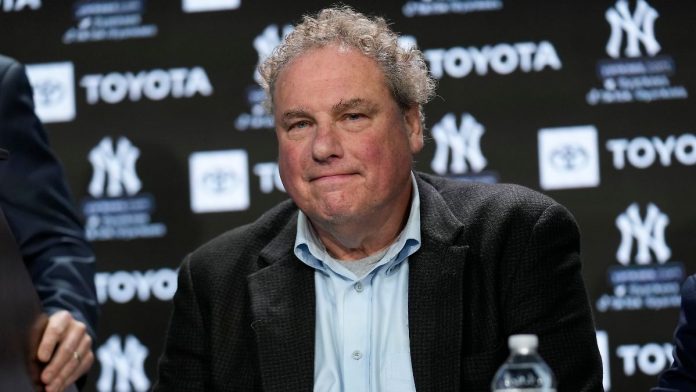UEFA is negotiating three cases
How multi-club owners are devouring football
Investors and European football – it seems to be a great love. More and more clubs are owned by the same people – this is only permitted under certain conditions due to UEFA’s rules for international competition. But it looks like boundaries are being pushed.
Two weeks time. And about 50,000 kilometers flight distance. This is how much the owner of the new Champions League winners Manchester City would have to plan for if he wanted to visit all of his 13 football clubs one after the other at some point. Sheikh Mansour bin Zayed Al Nahyan’s “City Football Group” from Abu Dhabi now includes teams from five different continents: from Mumbai City FC in India to Melbourne City, New York City and Palermo FC in Italy.
The fact that one person or company owns several clubs is a noticeable trend in professional football. This week he is dealing with the European association UEFA. He could soon also reach the German Football League (DFL).
UEFA’s regulations state: Nobody is allowed to influence more than one participating club in the three European Cup competitions, the Champions League, Europa League and Conference League. Because: “If you own two clubs in the same competition, you could instruct one to lose because the other should win,” said association boss Aleksander Čeferin in an interview on the former Manchester United’s YouTube channel in March -Professionals Gary Neville.
Three cases concern UEFA
Only last year, UEFA itself determined in a study that more than 180 clubs worldwide already belong to a structure like the “City Football Group”. And this makes it clear: In practice, the European Cup rule is becoming increasingly difficult to enforce. Specifically, a UEFA control body (CFCB) is dealing with three cases this week: AC Milan/FC Toulouse, Aston Villa/Vitoria Guimaraes and Brighton & Hove Albion/Union Saint-Gilloise.
The American investment firm RedBird Capital also bought the 19-time Italian champions AC Milan after FC Toulouse last year. And Milan then qualified for the Champions League again. However, Toulouse surprisingly won the French Cup and thus actually acquired the right to start in the Europa League. However, two RedBird clubs in a European Cup season are not allowed.
In order to comply with the regulations, three of the company’s managers recently resigned from the board of FC Toulouse. This is intended to give the impression that the club’s owners have no influence on day-to-day business. UEFA wants to decide by Friday whether that is enough for them or whether the French will be kicked out of the Europa League. The situation is similar in the other two cases. “We have to rethink the current rules,” said Čeferin, anticipating more and more such conflicts. And there’s a lot to be said for it: He wants to weaken the rules.
Red Bull has been dividing since 2018
UEFA was sharply criticized in 2018 for its handling of the sporting precedent: At that time Rasenballsport Leipzig and FC Red Bull Salzburg played against each other in the Europa League. The beverage manufacturer Red Bull was the sole shareholder of Salzburg from 2005 to 2015 and still holds 99 percent of the shares in RasenBallsport Leipzig GmbH. UEFA ruled at the time that there had been sufficient separation between the two clubs. The “integrity of competition” was not violated.
However, the example of Red Bull shows that despite the 50+1 rule, which limits the influence of investors, there are also clubs in German professional football that belong to multi-club constructs. Red Bull still has teams in Brazil and New York. The investment company 777 Partners joined Hertha BSC this year. The Berliners are the seventh football club in the world to be wholly or partially owned by Americans.
Hertha President Kay Bernstein told ntv.de: “My socialization, my conditioning, my value structure, my idea of how I want football to be, didn’t make it easy.” But Bernstein also recognizes advantages of this connection: “A new perspective, a new exchange and also new friction.”
“A vulgar satellite club”
It is precisely this synergy that many people see as critical of this model, but others also see it as an opportunity. Multiple clubs under one roof means that these clubs can support each other in screening, training and developing players. However, some choose to purchase these players far above or below market value, depending on their needs.
The fans of affected clubs primarily fear a loss of identity for their club. When the American owners of AFC Bournemouth also joined FC Lorient in France last winter, an Ultra group wrote in an open letter: “There is no question that we are becoming a vulgar satellite club, a simple training ground for our English parent club .”
In Germany, the DFL has stipulated that in the Bundesliga and 2nd Bundesliga no one “may have a direct or indirect stake in more than three corporations.” Volkswagen AG will soon reach this limit. It already owns VfL Wolfsburg Fußball GmbH and, through the VW subsidiary Audi, also 8.33 percent of FC Bayern München AG. Porsche wants to join VfB Stuttgart this summer – this AG is also part of the Volkswagen Group. The DFL will have a problem if FC Ingolstadt is promoted back to the second division. Because its shareholder is called Audi.


